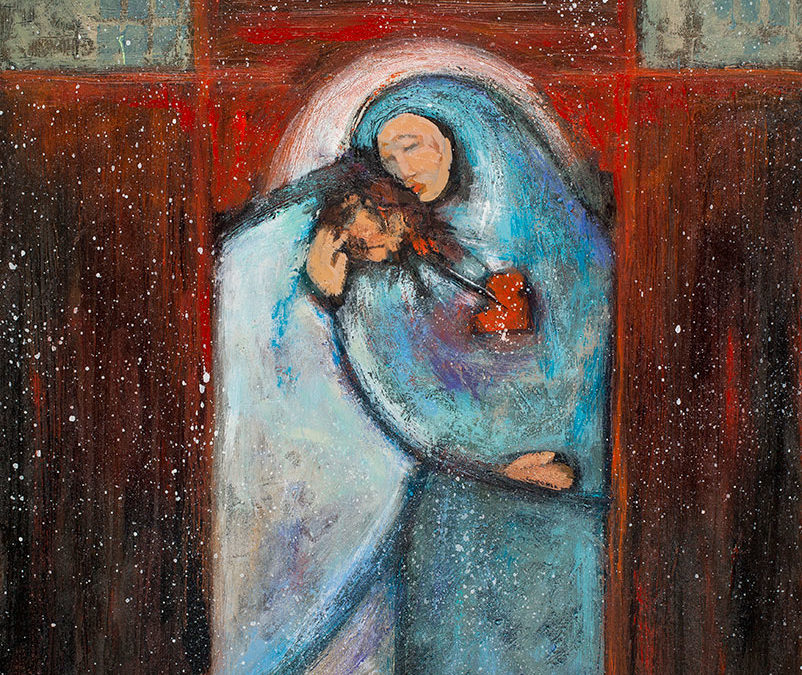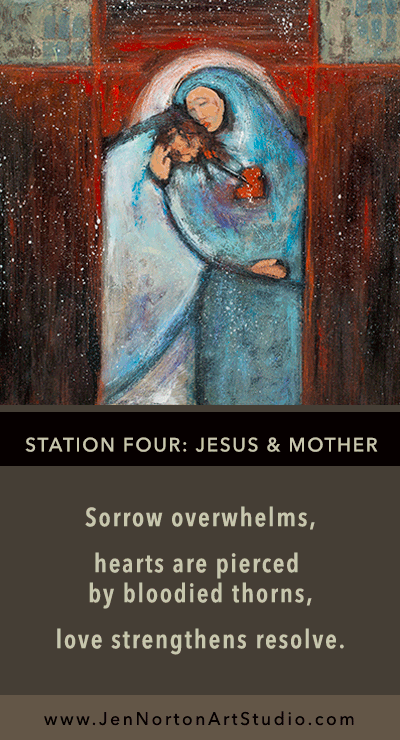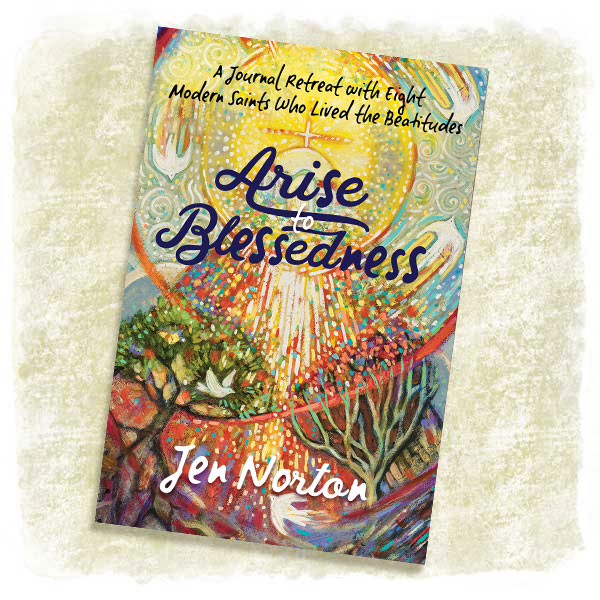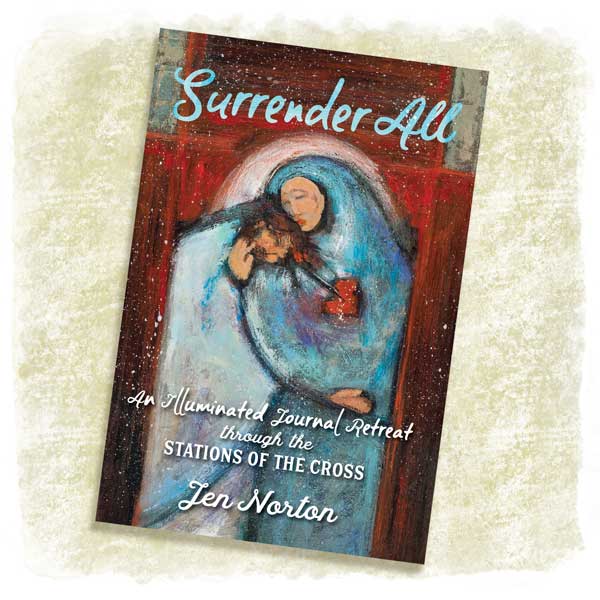“Station Four: Jesus Meets His Mother”
12 x 12” Acrylic on wood
Note: original art does not include haiku
Set of 14 Stations $8000
I can’t help but think of this station from a mother’s perspective rather than as an observer. Mary was forewarned of Jesus’ destiny by both the Angel Gabriel at the Annunciation and Simeon at the Presentation in the temple. We are told she kept these things in her heart and pondered them. Maybe knowing there was purpose to the “seven swords that would pierce her heart” comforted her in the aftermath of her son’s death. I don’t believe for a second, however, that it brought any relief on the day of his crucifixion. The pain in her heart, like the heavy wooden cross, had to have been crushing. No mother can watch her child suffer and not feel intense agony. In that moment, he wasn’t Jesus, Son of God—he was just her son Jesus. Add to that how unjust the whole scene was from a legal standpoint. Yes, she stayed through the end because that’s what you do when you love someone and they need you. You stay, you comfort, you pray.
That’s what you do when you “mother” someone. You stand your ground, sometimes against your own desire, knowing you may be the only thing that comforts the one who is hurting.
That’s what you do when you “mother” someone. You stand your ground, sometimes against your own desire, knowing you may be the only thing standing between your child and despair. It is the feminine character of God—the inner fortitude, the nurturing life force, the heart of service, that we must embrace to withstand such times. When we are faced with the prospect of harm toward our child, or any child, we should look to Mary.
Color is symbolic in each of my Stations pieces: Red = Points of pain; White = Movement of the Holy Spirit; Blue = God’s presence; Black = the weight of the cross; Neutrals = Humanity.
View a silent meditation of all 14 stations and the Resurrection here.
Pray: For mothers and children who are separated by politics or violence beyond their control.
Action: Educate yourself on political policies that affect poverty, especially of women, children and minority populations both at home and in developing countries worldwide. If you feel called, don’t be afraid to take non-violent action.






